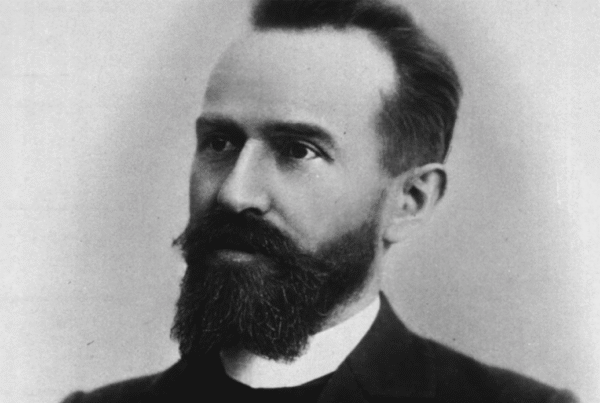FRITZL COMPLEX, OEDIPUS AND ELECTRA
What are the essential differences between Fritzl Complex, the legend of King Oedipus of Thebes, and the legend of Electra Agamemnon? How are the legends applicable in therapeutic situations?
Fritzl Complex
I coined the term Fritzl Complex (Maurice-Nneke 2022) as a male or female anxiety which is characterised by a morbid, escalating fear, that one would be sexually assaulted, or beaten up, in a sadistic way or horribly tortured by one’s parent. Thus, follows the avoidance of any form of contact with the parent. The anxiety also entails the morbid, escalating fear of being in a secluded, unfamiliar place, with a stranger under the suspicion that one might be sexually assaulted, tortured or murdered.
I named this complex after Josef Fritzl of Amstetten, Austria, who enslaved and imprisoned his daughter, Elisabeth, and the children he fathered with her, in a windowless dungeon. He tortured his daughter and raped her every week for 24 years. He murdered one of the children he fathered with her.
However, Josef Fritzl was not the only parent to commit this crime on his own child. His case attracted more publicity because of the discovery of the windowless dungeon which he constructed under his house which insulated his activities from the public and enabled him to live in two worlds, a life in the secret world of the dungeon where his reign was supreme and a quasi-normal life, upstairs with his unsuspecting wife.
Oedipus Complex
Oedipus complex is a Freudian concept which he derived from Greek mythology. In Sophocles’ legend of King Oedipus of Thebes, Oedipus killed his natural father, King Laius, and later married his own natural mother (birth mother), Jocasta, without knowing their true identity. In the legend, Laius was warned in a prophecy by Apollo in the Delphic Oracle that he will have a son who will kill him and marry his mother (Laius’ wife). Soon after, his wife gave birth to a son.
Fearing that the prophecy would be fulfilled, Laius ordered his messengers to kill the baby. However, his messengers disobeyed him and saved the baby. They tied the baby up hands and feet up together, causing his feet to swell, and abandoned him in a desolate land where he was rescued and taken to the King of Corinth who brought him up as his own son and heir to his throne.
When he grew up, Oedipus also consulted the Oracle at Delphi to learn about his own affairs and he was warned that he will kill his father and marry his mother. Believing that the King and Queen of Corinth were his natural parents, Oedipus set out to get as far away from them as possible in order to avoid such horrible fate. On his way, he fought and killed King Laius, his natural father, without knowing the true identity of his opponent. He arrived finally at Thebes, the place of his birth where he saved the people from the Sphinx by solving the riddle of the Sphinx. He was then awarded the Theban Kingdom and its Queen, Jocasta, his own natural mother, as his price for saving the kingdom from the Sphinx. When the truth of what had happened was revealed to the people after the birth of four children to Oedipus and Jocasta and years of punishment to Theban Kingdom by pestilence, Jocasta committed suicide by hanging and Oedipus plucked his own eyes. He left Thebes in exile and became a wandering blind man, guided by his daughter, Antigone, to his final resting place at Colonius, near Athens.
Freud adapted Sophocles’ legend for his concept of Oedipus complex in psychoanalysis in terms of symbolic meaning and used it to refer to the development of certain neurotic disorders as a result of conflicts of love at an earlier age in circumstances where an infant male child struggles to resolve his feelings of love for his mother and a corresponding feeling of hatred for his father for possessing his mother. Under the concept, an infant female child is said to have a feeling of love for her father and a corresponding feeling of hatred for her mother for possessing her father.
The Oedipus of Sophocles’ legend does not have this particular conflict but he had a conflict of doom from which he could not extricate himself. He was doomed to commit patricide by killing his natural father and marrying his natural mother. Although the prophecy was fulfilled when he killed his father and married his mother, he did not know them as his natural parents because he believed that the King and Queen of Corinth who brought him up from babyhood were his natural parents.
Electra Complex
Electra complex is Carl Gustav Jung’s concept. Jung derived the concept from Greek mythology and used it analogously to Freud’s concept of Oedipus complex, above. Jung uses the concept to refer to the feeling of affection which a girl child feels for her father and an opposite feeling of hostility for her mother.
The mythology of Electra is the subject of Greek tragedies by dramatists Aeschylus (C525-456BC), Euripides (c480-c406BC) and Sophocles (c495-406BC). Electra was the daughter of King Agamemnon of Mycenae and his consort Clytemnestra. Electra was the sister of Orestes and Iphigenia.
Her father, King Agamemnon, was the leader of the Greeks against Troy during the battle of Troy in the Trojan War. He defeated Troy and was awarded Cassandra, the daughter of King Priam of Troy, as his trophy or prize for victory. On his return home to Greece with his trophy wife, Cassandra, he found that his wife Clytemnestra, had taken a lover during his absence on war duties. He was subsequently murdered by his wife, Clytemnestra, and her lover Aegisthus.
Electra hated her mother for the murder of her father and, with the help of her brother, Orestes, she avenged the murder of her father by exacting the same treatment on his murderers. They murdered their own mother Clytemnestra and her love Aegisthus.
As I mentioned above, Jung takes Electra complex to be the female equivalent of the Oedipus complex. However, there is a difference in the legends of the two Greek tragedies. In Oedipus, his birth and fate were prophesied by the god, Apollo, in the Oracle of Delphi. He was doomed to kill his father and marry his mother. He killed his natural father in a fight without knowing the identity of his opponent just as he did not know his own true identity. He married his natural mother (birth mother), Jocasta, when she was awarded to him as a prize, a trophy just as in the case of Agamemnon and Cassandra, for saving Thebes in solving the riddle of the Sphinx. However, he did not know the identity of the man he killed in a fight just as he did not know the identity of the woman he married.
In contrast to Oedipus, Electra had full knowledge of the identity of her parents. She collaborated with her brother, Orestes, and they killed their own mother in the full knowledge of who she was and what they were doing. They killed their mother to avenge her murder of their father. Also, in contrast to the Oedipus legend, Electra did not marry her father.
Fritzl complex, is different from the Greek legends from its direct sexual content and premeditation of evil desire, domination, segregation, secrecy and fear which necessitates the construction of the windowless dungeon from where he could escape the eyes of the public.
You can leave a comment or message here in answer to the questions at the start of the blog.
REFERENCES
FREUD, Sigmund. 1924. The Dissolution of the Oedipus Complex (1924d, SE19)
FREUD, Sigmund. 1905. Three Essays on the Theory of Sexuality (1905, SE7)
MAURICE-NNEKE, Antony. 2022: Sex and Psychodynamics Psychiatry. Amazon Kindle
MAURICE-NNEKE, Antony. 2003: The Psychodynamics of the Unconscious. Intapsy Publications.





Goood day! I know this is kinda off topic but I
was wondering if you knew where I could gett a captcha plugin for my comment form?
I’m using the same blog platform as yours and I’m
having trouhble finding one? Thanks a lot! https://ukrain-forum.biz.ua/
Hello, thanks for your visit to the website. What are you seeking, what do you want to get?
Write in full, perhaps I may be able to connect you to what you are seeking to get. Have a nice day.